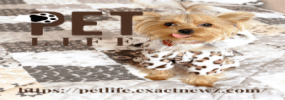Do Not Poison Your Dog
It is not a secret that many dog owners become so attached to their pets that the dog in effect becomes a member of the family with almost all of the privileges of other family members. I am not speaking here of the type of dog that may be a working dog such as a hunting dog, watchdog, herding, or sled-pulling dog. Many of these dogs are strictly outdoor dogs and although some receive lots of love from their owners others are badly neglected until their services are needed.
The concern is for the indoor pet who spends most of its life surrounded and loved by family members. Parents sometimes feel guilty when they find it necessary to refuse an unhealthy candy snack or toy to their child even though they know it is best. The look of misunderstanding or hurt on the child’s face may cause the parent to give in just one more time and hand over the snack.
Every dog owner has faced the same situation with their pets. How is it possible to refuse a little table scrap when you feel a paw on your knee and glance down from the dinner table into those sorrowful eyes of your friendly pal who has his head turned just to remind you how much he loves you? Hey, just a little piece of your hot dog or pork chop or a nibble of something from your salad. Is that asking so much you can hear him thinking?
Before that guilty feeling overcomes you please do a little research to make sure that those table scraps or other human treats are not causing severe harm to your dog. Some table scraps or food items used for treats when training your dog are probably fine. But others may be toxic or even deadly. Following is a list of Toxic Foods provided by the ASPCA National Animal Poison Control Center.
* Onions or onion powder
*Chocolate
* Coffee and all coffee-related products
* Chocolate-covered espresso beans
* Tea
* Alcoholic beverages
* Macadamia nuts
* Hops (Used in home beer brewing)
* Grapes and raisins (including juices and wine
* Tomato foliage (leaves and stems)
* Green parts of potato (green peelings, sprouts, and foliage)
* Rhubarb leaves
* Avocados
* Pits and seeds from fruits (plum, apricot, peach, apple, and some varieties of cherry)
* Bitter Almonds
* Moldy or spoiled foods
Human food when properly prepared and made excellent food for your dog. However much of what we humans eat and how we prepare it can be harmful for the family pet. In another article, we will give some tips on what human foods are good for your dog and tell you why they should be prepared in a certain way.
Should you toss him a bone?
Feeding bones to dogs has probably been a practice since the first dog found its way into someone’s backyard or home. Some owners feed a bone now and then to help keep the dog’s teeth clean. While the practice is widespread there are some potential problems of which you should be aware. Chicken bones and bones from other fowl are very brittle and should never be fed to a dog. Animal bones can splinter causing sharp splinters to become lodged in the digestive tract.
If you decide to feed bones to your dog use some care. Bones should be boiled for 30 minutes to kill bacteria and remove excess fat and marrow. It is also good safety practice to make sure someone is with your dog when he is chewing on any bone. Taking a few precautions will help to ensure years of friendly, happy company from your four-footed family member.




